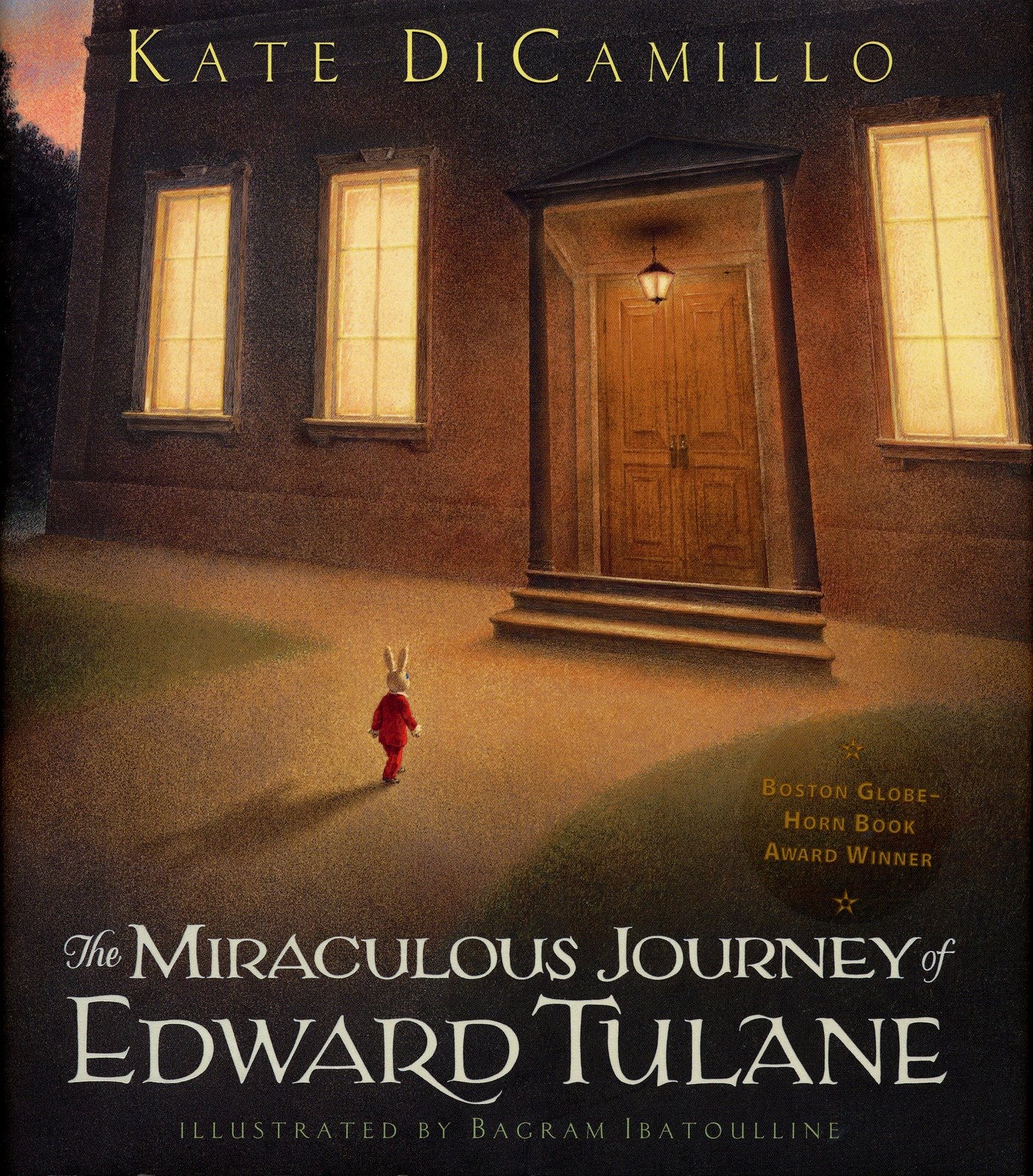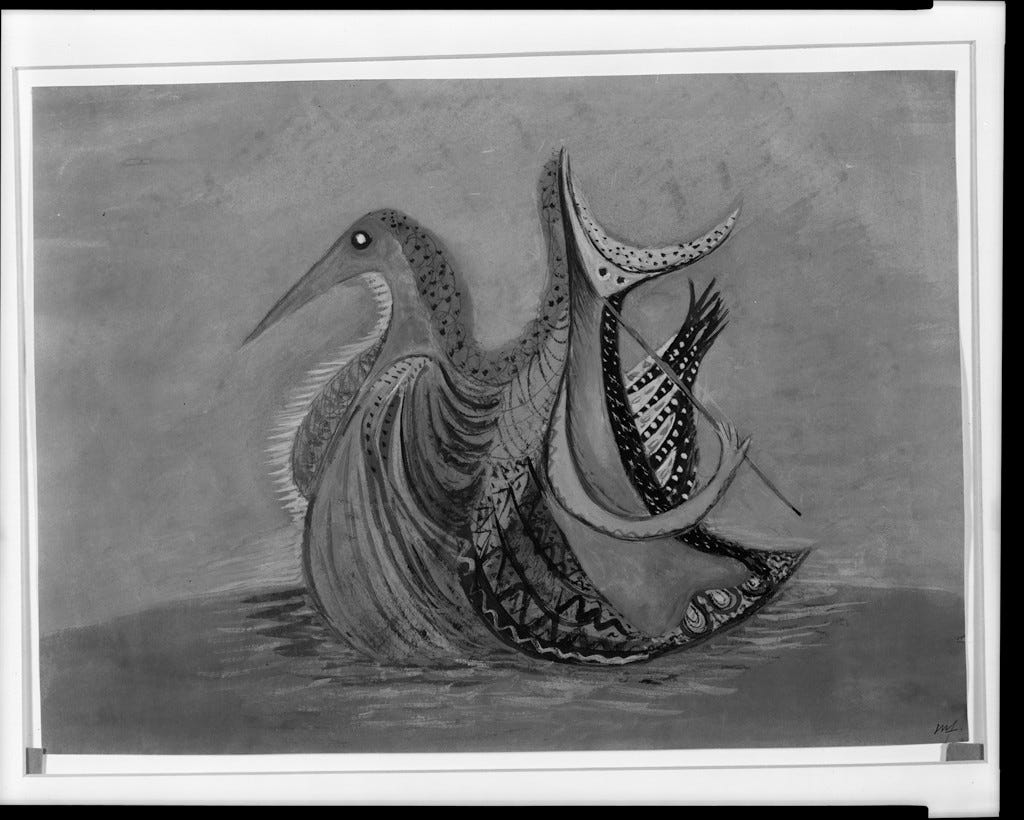Bookneedle 001 / Edward’s Journey
“And Edward felt a warm rush of pleasure at being recognized, at being known.”
Book: The Miraculous Journey of Edward Tulane by Kate DiCamillo
What makes this story unique and the BookNeedle all the more powerful is the fact that Edward is a doll and all the action occurs upon him, not by him; but the funny thing is is that you start thinking that it is all Edward’s doing—his actions—even though you are repeatedly reminded by Edward himself that he cannot move, which hints that this is going to be a journey of the mind.
“I’m the deed which thy thoughts engender.” - Heinrich Heine, Germany. A Winter’s Tale
“A man is but the product of his thoughts. What he thinks, he becomes.” - Mahatma Gandhi
These thoughts, like those of a dream, are what create the action but with a distinct separation from reality like any movie, piece of art, or book. While Edward cannot move, he can see. Just like Edward, we are the observers of what takes place and it is our thoughts that define the significance.
“Could it be that thinking arises as a response to seeing? Without eyes, would minds exist at all?” - Simon Ings, A Natural History of Seeing
Edward can also hear (and well, given his ears—he is a rabbit) and the words by a character known as grandmother Pellegrina, which in Italian translates to pilgrim, haunt him. Those words come in the beginning of the book after a story Pellegrina tells about a princess who had loved no one and in the end turned into a warthog that was killed and eaten. And so, “[s]he [Pellegrina] leaned close to him [Edward]. She whispered, ‘You disappoint me.’” This is a critique of Edward, who is more concerned at this stage of the story about the inconveniences of his placement than anything to do with love, which somehow this pilgrim could perceive. Like morality, those words weigh on him so much that he begins to blame them for his physical situation of being thrown overboard into the ocean by a couple of boys, resulting in the separation from his first owner, Abilene:
“And then the rabbit thought about Pellegrina. He felt, in some way that he could not explain to himself, that she was responsible for what had happened to him. It was almost as if it was she, and not the boys who had thrown Edward overboard.”
This ocean becomes his mirror of forced self-reflection on the pangs of his unconscious, waiting to be realized once he can see properly.
“When we talk about self-worth, are we not talking, really, about how we are reflected in the mirrors of other people’s minds?” - Anthony de Mello, Awareness
It is only after he is thrown overboard that he begins to understand the difference between seeing things for what they are and recognizing them for what they mean. In the beginning, Abilene expressed to Edward, “I love you. I don’t care how old I get, I will always love you.” Agitated, “Yes, yes, thought Edward,” annoyed to accept the love simply for being. Abilene, her love, is unimportant to Edward because he only sees himself, then he goes overboard and begins to separate himself from what he sees.
“We learn to think about everything,” he said, “and then we train our eyes to look as we think about the things we look at. We look at ourselves already thinking that we are important. And therefore we’ve got to feel important! But then when a man learns to see, he realizes that he can no longer think about the things he looks at, and if he cannot think about what he looks at everything becomes unimportant.” - Carlos Castaneda, A Separate Reality
What Edward experiences once he goes overboard are others and for the first time “sees” their love for him, their love as signaled by the new names they give him. He is no longer simply Edward, he is the reflection of love that gives him an existence.
“Alone, we have no name and no face, no one to call out to us and no reflection in which to recognize our features. It is only after Enkidu has died that Gilgamesh realizes the extent to which his friend is part of his own identity. ‘O Enkidu,’ Gilgamesh weeps, ‘you were the axe at my side / in which my arm trusted, the knife in my sheath, / the shield I carried, my glorious robe, / the wide belt around my loins, and now / a harsh fate has torn you from me, forever.’ If the Epic of Gilgamesh carries a teaching, it is that the other makes our existence possible.” - Alberto Manguel, The City of Words
With this, he has the ammunition to fight Pelligrina:
“During the night, while Bull and Lucy slept, Edward, with his ever-open eyes, stared up at the constellations. He said their names, and then he said the names of the people who loved him. He started with Abilene and then went to Nellie and Lawrence and from there to Bull and Lucy, and then he ended again with Abilene: Abilene, Nellie, Lawrence, Bull, Lucy, Abilene.
See? Edward told Pellegrina. I am not like the princess. I know about love.”
Edward does not change because of his conditions but rather the love that people give to him.
“You do not change if you merely change your exterior world.” - Anthony de Mello, Awareness: The Perils and Opportunities of Reality
With that recognition, we come to the BookNeedle, roughly in the middle of the story, where Edward, sitting around a campfire with his latest owner, Bull, who named Edward Malone, is no longer “alone”: “And Edward felt a warm rush of pleasure at being recognized, at being known.” It is one of those “perfect moments,” one you can appreciate as an observer and think upon, but to “live in it,” that “perfect moment,” is the strength of thought:
“Then I close my eyes and try to imagine that I’m still living inside it.” - Jean-Paul Sartre, Nausea
Edward is no longer the casualty of his circumstance, but the product of love:
“The highest function of love is that it makes the loved one a unique and irreplaceable being.” Tom Robbins, Jitterbug Perfume
In the end of the story, where Abilene, as a mother with a daughter, recognizes Edward and Edward recognizes her, a conclusion that brings that “warm rush of pleasure” in the actualization of what Abilene expressed long ago.
Book Review from a Seven Year Old
“I give it a medium. What I didn’t like about it is the ending, it was missing that down part of the slide.”
Art
This drawing is called The Emerald Journey by Margaret Fisher. To me it epitomizes the journey of anyone and the changes that can occur. Here, there appears to be some type of bird that is radically transformed with the image of another who is perhaps making itself known through some type of wind instrument and whose eyes are the opposite of the bird’s, black pupils rather than white. Each figure is uniquely and extravagantly designed with a common bond between the two. These two figures are melded together to form one complete image, resting on what seems to be water. The water ripples, indicating movement either by the creature or upon the creature. Isn’t this true of us all?
“In loves and tears of brothers, sisters, sons, fathers, and friends / Which if Man ceases to behold, he ceases to exist” - William Blake, Jerusalem, the Emanation of the Giant Albion
Books Mentioned
Blake, William. “Jerusalem, the Emanation of the Giant Albion.” Blake: The Complete Poems, edited by W.H. Stevenson, 3rd ed., Routledge, 2007.
Castaneda, Carlos, A Separate Reality. New York, WSP, 1991.
De Mello, Anthony, Awareness: The Perils and Opportunities of Reality. Center for Spiritual Exchange, 1990.
Heine, Heinrich, The Poems of Heine. Translated by Edgar Alfred Bowring, C.B., London, 1908.
Ings, Simon, A Natural History of Seeing. New York, W.W. Norton & Company, 2007.
Manguel, Alberto, The City of Words. Toronto, House of Anansi Press Inc., 2007.
Robbins,Tom, Jitterbug Perfume. New York, Bantam Dell, 1984.
Sartre, Jean-Paul, Nausea. Translated by Lloyd Alexander, New Directions, 2013.
So it begins. I hope you like my first post. See you soon.
I’m on Twitter: @BookNeedles




